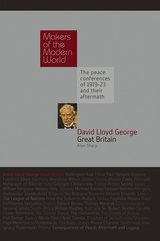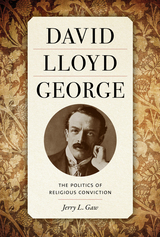

Born on January 17, 1863, in Manchester, England, David Lloyd George is perhaps best known for his service as prime minister of the United Kingdom during the second half of World War I. While many biographies have chronicled his life and political endeavors, few, if any, have explored how his devotion to democratic doctrines in the Church of Christ shaped his political perspectives and choices both before and during the First World War. In David Lloyd George: The Politics of Religious Conviction, Jerry L. Gaw bridges this gap in scholarship, showcasing George’s religious roots and their impact on his politics in the late nineteenth and early twentieth centuries.
With a comprehensive narrative that spans more than a century, Gaw’s book ranges beyond typical biography and examines how the work and theology of Alexander Campbell, a founder
of the Stone-Campbell Movement in America, influenced a prominent world leader. George’s twelve diaries and the more than three thousand letters he wrote to his brother between 1886 and 1943 provide the foundation for Gaw’s thorough analysis of George’s beliefs and politics. Taken together, these texts illuminate his lifelong adherence to the Church of Christ in Britain and how his faith, in turn, contributed to his proclivity for championing humanitarian, egalitarian, and popular political policies beginning with the first of his fifty-five years in the British Parliament.
Broadly, Gaw’s study helps us to understand how the Stone-Campbell tradition—and later, Churches of Christ—became contextualized in the British Isles over the course of the nineteenth century. His significant mining of primary materials successively reveals a lesser-known side of David Lloyd George, in large part explaining how he arrived at the political decisions that helped shape history.
READERS
Browse our collection.
PUBLISHERS
See BiblioVault's publisher services.
STUDENT SERVICES
Files for college accessibility offices.
UChicago Accessibility Resources
home | accessibility | search | about | contact us
BiblioVault ® 2001 - 2024
The University of Chicago Press









